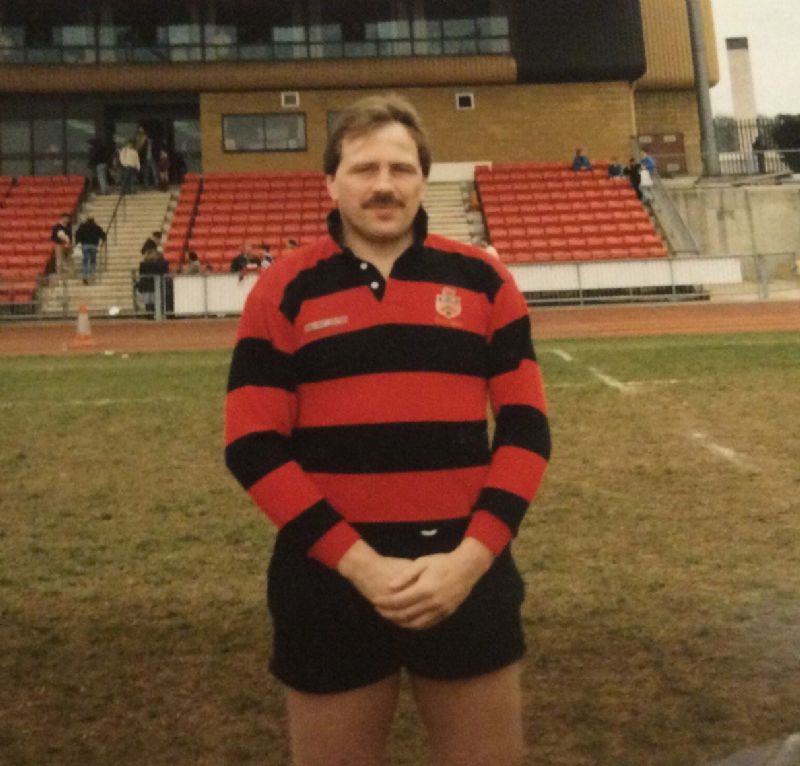- Home
- News, Articles & Reviews
- All Sport
- Cricket
- Cycling
- Football
- Golf
- Horse Racing
- Rugby Union
- Angling
- Archery
- Athletics
- Basketball
- Bowls
- Boxing
- Croquet
- Dance
- Darts
- Diving
- Duathlon
- Equestrian
- General
- Gymnastics
- Hockey
- Martial Arts
- Modern Pentathlon
- Motorsport
- Mountain Biking
- Netball
- Padel
- Parasport
- Polo
- Powerboating
- Powerlifting
- Rowing
- Rugby League
- Running
- Scuba Diving
- Shooting
- Skiing
- Skittles
- Snooker
- Squash
- Swimming
- Table Tennis
- Tennis
- Triathlon
- Tug of War
- Walking
- Walking Football
- Water Polo
- Weightlifting
- Wheelchair Tennis
-
Sport
- All Sport
- Cricket
- Cycling
- Football
- Golf
- Horse Racing
- Rugby Union
- Angling
- Archery
- Athletics
- Basketball
- Bowls
- Boxing
- Croquet
- Dance
- Darts
- Diving
- Duathlon
- Equestrian
- General
- Gymnastics
- Hockey
- Martial Arts
- Modern Pentathlon
- Motorsport
- Mountain Biking
- Netball
- Padel
- Parasport
- Polo
- Powerboating
- Powerlifting
- Rowing
- Rugby League
- Running
- Scuba Diving
- Shooting
- Skiing
- Skittles
- Snooker
- Squash
- Swimming
- Table Tennis
- Tennis
- Triathlon
- Tug of War
- Walking
- Walking Football
- Water Polo
- Weightlifting
- Wheelchair Tennis
We are hiring! Please click here to join our growing magazine delivery team in Gloucestershire!
Areas
Sport
Archive

Back in the Day: Geoff Cornish, Cheltenham Rugby Club
All Areas > Sport > Rugby Union
Author: Roger Jackson, Posted: Wednesday, 9th March 2022, 12:00
“I was a straightforward, average rugby player.”
Those are the words of Geoff Cornish, a regular in the engine room of Cheltenham’s pack for more than 20 years in an era when they played the best clubs in the land.
He should have said ‘modest’ too because the one-time second row, now 67, was a lot more than “straightforward” and “average”.
You don’t go toe-to-toe with some of the biggest names in the game without being able to play rugby a bit yourself.
Cornish first played for Cheltenham in the early 70s when he was still a student and he played his last game in 1996.
And there was never a dull moment along the way because those 20-plus years were a time of great change both at Cheltenham and in the sport of rugby in general.
Cornish is originally from Okehampton in Devon but although a strong rugby area, he didn’t start playing the game until the age of 12. “There was no minis and juniors in those days,” he said. “You weren’t allowed to play rugby until you were 12 at West Buckland School.”
The young Cornish was soon making up for lost time, however, although in those days not in the position that he played for almost his entire adult career.
“I was a no 8,” he said. “I played there all the way through school.”
And he was very good too because he played for Devon Schools all the way through and was part of the under-15 team that went through a whole season unbeaten.
“We had a very good team,” recalled Cornish. “I played alongside John Scott, I was no 8 and he was in the second row so you could say I kept him out!”
Younger readers may not know that Scott went on to become an integral part of England’s 1980 Grand Slam-winning team – he played no 8 – and captained his country in the early 80s.
Cornish also played for West of England Schools – he remembers drawing 6-6 with the North at Nuneaton in the under-15s – and he said: “I had a reasonable amount of ball skills and playing ability in those days,” before adding with a laugh, “I got worse as I got older!”
Cornish doesn’t like talking himself up when it comes to his rugby and he doesn’t like comparing different eras either.
“I don’t think you can,” he said. “In those days we played a very different game. We were all much lighter than they are now, today they’re all massive physical specimens.
“The handling ability, fitness and general skills level is so much higher today. When I played in the 70s and 80s it was a violent game, a lot of nasty stuff went on but we accepted it.”
Cornish moved to this part of the world in 1973 when he enrolled at St Paul’s College in Cheltenham and like a fair number before him, and since, he has never left the area.
He trained as a PE teacher but never did go back to school, instead moving into business and going on to become a UK sales manager for a plastics company before retiring four years ago.
And although the course, ultimately, did not shape his life, Cornish certainly enjoyed his time at St Paul’s, particularly the rugby, and he was good enough go for a British Colleges trial.
“The college produced a huge number of players and coaches in Gloucestershire,” he said. “John Simmonet, Ian Wilkins, Pete Kingston, Dave Pointon and Brian Bartlett.
“When Cheltenham beat Gloucester in the late 70s, there must have been six or seven players who went to St Paul’s across both teams. It was a good academy for rugby.”
Cornish first played for Cheltenham in 1974/75 against a team called the California Poppies and he also remembers playing Moseley that season too.
“That was Dave Protherough’s last game for Moseley, although I didn’t know it at the time,” said Cornish. “Martin Cooper and Jan Webster, who both played for England, played in that game.”
Cornish played three games for the club while still a student – they all ended in defeat – before joining Cheltenham and playing for them week in, week out at the start of the 1976/77 season.
Cornish wasn’t tall for a lock – “I wasn’t a high-flier at the lineout,” he said – and it’s fair to say that, on the pitch at least, it wasn’t the best time to join Cheltenham.
“We didn’t win a game for 19 months,” he said.
And while that sounds tough – and it was – there was a reason for those grim statistics.
“We were part of the Senior Rugby Clubs’ Association and were travelling all over the country to play games against the best teams,” said Cornish. “We played Gloucester, Bristol, Coventry, Bath, Exeter, Northampton, Moseley, all the London teams – Wasps, Saracens, London Irish.
“In those days there were people like Tim Gardiner, Tank Curran, John Woodward, David Hughes, Mike Hyde, Phil Newport-Black, Pat Geenty and Martin Jones playing for Cheltenham.”
They finally stopped the rot when they won at Weston-super-Mare and, as is so often the case, one win was soon followed by another because they then beat Cross Keys on a Wednesday night at the old Athletic Ground.
That old Athletic Ground is fondly remembered by many rugby players of that era, of course, with the club playing there until 1981 when they moved to the Prince of Wales Stadium in Tommy Taylors Lane.
“In our last game at the Athletic Ground we beat Northampton 12-0,” recalled Cornish.
By then those difficult days of the mid-70s, when defeat followed defeat, were very much a thing of the past.
“By the late 70s and early 80s we had a very good team,” said Cornish, who gives much of the credit for the turnaround to then captain Maurice Hamlin.
“Maurice along with a few others – Ben Edwards and Barrie Lewis – kept the club alive from 1975 to 1978,” said Cornish. “They broke the mould with Maurice, he halted the slide and attracted new players. If it wasn’t for him, Cheltenham Rugby Club wouldn’t be where they are now.
“Financially the club were broke so we were lucky when we moved to the Prince of Wales Stadium because we could bring in some revenue.”
That first game at their new stadium was against one of the great names of English rugby.
“We played Harlequins,” said Cornish. “I’ve got the programme in front of me, Dick Best, who coached England, was captain. He played in the second row, they put out a quality team to match the occasion.
“WPC Davies, who played for England, was the link because he played for Harlequins and Cheltenham.”
And there were other high-profile games around this time too.
“We played Gloucestershire, a Scottish XV and Public School Wanderers, they were full of internationals,” continued Cornish.
In those days the top internationals players didn’t necessarily gravitate to the top half-a-dozen or so clubs as they do today so it meant that Cheltenham, with their high-profile fixture list, were rubbing shoulders with some of the biggest names in the game.
“You had Bill Beaumont at Fylde, Tony Neary at Broughton Park, Tommy David at Pontypridd, Mike Slemen at Liverpool, Andy Ripley at Rosslyn Park, Paul Ringer, Clive Burgess and Arthur Lewis at Ebbw Vale,” said Cornish. “You had a real spread of internationals and in those days we played seven or eight of the teams who are in the Premiership today.”
One of those teams was obviously Gloucester and one of Cornish’s most pleasing moments on a rugby field was when Cheltenham went to Kingsholm in the 1978/79 season and won 10-6.
“That was enjoyable,” he said with typical under-statement. “According to the programme, Mike Teague made his debut in that game coming on as a replacement, although I don’t remember that.”
What he does remember is that he was booked to go on holiday to Greece the day after the game and he said with a laugh: “I think I drank Greece dry that week!”
And while that win was obviously special, Cheltenham had been on an upward curve for a while by then.
“We’d had an influx of local Gloucester players and it was a good mix with the players we already had,” said Cornish. “In the late 70s we won 27 games and drew three – we drew with Bristol and Moseley and only just lost to Nottingham who were a top team back then.”
Cornish also remembers a game against Harlequins at Twickenham back in December 1977.
“They used to play some of their games there,” said Cornish. “It was a very, very cold day. They had a pretty good team out and even though we lost 22-9 that was something special to play at Twickenham. That was the old stadium with the really steep stands.”
Cornish also has good memories of playing against Bill Beaumont, although it was in somewhat unusual circumstances.
“We were playing New Brighton away,” recalled Cornish. “Beaumont had been injured and he needed to prove he was fit to play for England so he guested for New Brighton.”
So did Beaumont prove his fitness that day?
“We ran rings round him,” laughed Cornish.
Beaumont wouldn’t have been able to play for another club nowadays, of course, even if it was to get him England ready – the introduction of league rugby in the late 80s saw to that.
Cornish, however, was a supporter of league rugby when it came in.
“We found our level as a club,” he said. “It brought a focus and I enjoyed it.”
And he’s pleased to see Cheltenham doing so well this season in Western Counties North.
Although he is not involved in rugby these days, he still goes to watch them play from time to time at the Newlands.
“They’ve got a really good set-up,” he said. “The players are happy and they’re playing good rugby.
“I watched them play Matson recently, it was a cracking game.
“The club are financially secure. It’s taken a while but they are in a good place.”
But while Cheltenham are flourishing, that’s not true of all clubs, certainly some of those lower down the pyramid.
“The worry is that there aren’t so many players playing rugby,” said Cornish. “I’m not sure that league rugby is working as well as it should the further you go down the pyramid.
“The RFU need to do something because I’m not sure where rugby is going at that level.”
Cheltenham play their home games on an all-weather pitch at the Newlands, of course, a surface that was never an option in Cornish’s time.
So would he have liked the opportunity to have played on that kind of surface?
“It does look very good,” he said, “but I think I was better off in the mud at the Athletic Ground. I didn’t have to run so fast or so hard!
“That pitch was tremendous to play on, much better than the one at the Prince of Wales.”
Cornish reduced his rugby commitments after 1989 but he continued to play for the club until 1996 when he was 42.
“I loved playing for Cheltenham and I never saw any reason to discontinue playing for them,” he said.
“I remember towards the end of my career, I was playing for the United. Dave Protherough, who was the coach, sidled up to me and said they’d got a few injuries and asked if I fancied a game at Plymouth Albion for the first team.
“I didn’t but I did play!”
Former Gloucester prop Malcolm Preedy was captain back then and Cornish rates Protherough, Bob Redwood, Andy Wyman and Richie Akenhead as the best coaches he played for at Cheltenham and Maurice Hamlin as the best player “because of what he did for the club”.
“I played with some really good players,” said Cornish. “Lewis Dick, Pete Kingston and Chris Williams were all internationals, while fly-half Mike Hamlin went on to captain Gloucester. Gareth Warren and Nigel Smart were also good players.
“Because I played for so long, I played with so many people and towards the end I enjoyed playing with the younger players who came through, Cheltenham Colts such as Mike Steele, Roger Brown, Scotty [Chris Scott], John Little, Paul Edwards, Pete Lodge and Tim Clink.
“It was great to play with these young players, they were all brought through by John Woodward and Mike Edwards.
“Cyril Kelly was another who was a good influence on the club around this time when he was captain.”
And what about the players he played against, who were the standout ones?
“Bill Beaumont obviously,” said Cornish. “Steve Brain when he played for Coventry, any Gloucester pack and any Coventry pack of the mid-70s.
“We were always in Gloucester’s shadow but for a few years after our win against them the matches were always very close.”
Those games are just some of the many great memories for Cornish, a robust player who never took a backward step on the pitch.
“This April will be the 40th year since we went on tour to Texas, it was when the Falklands War started,” said Cornish.
“Then there was the time when we competed in a 7s tournament in Amsterdam, it was an international event and it was sponsored by Heineken; we drank a lot of that stuff!
“I also remember when we played a touring team from New Zealand called the Cantabrians at the old Athletic Ground in the late 1970s.
“It was an exhibition game but they had seven All Blacks in their team – players like Sid Going, Hamish Macdonald, Billy Bush, Tane Norton and a young Bernie Fraser.
“They played a robust game as you’d expect!”
Ask Cornish what he enjoyed most about rugby and he says: “Just playing the game.
“The connections I made and the friends I’ve still got, wherever you go there’s always someone who wants to talk about rugby.
“It’s a fantastic sport and it’s given me a lot through my life.”
It certainly has because he met his wife Helen at Cheltenham Rugby Club and they’ve now been married for approaching 40 years.
They live in Tivoli in the heart of Cheltenham and Helen has supported Cornish throughout his rugby life and once even won a couple of tickets for an international at Twickenham. And it wasn’t just any international.
“It was the 1991 World Cup final,” said Cornish. “The competition was run by the Daily Mail and she had to say why she wanted to win the tickets. She said, ‘My husband loves rugby and I love him!’”
That day at Twickenham was a great experience, of course, even though England lost to Australia, and Cornish continues to live life to the full.
“I’m a part-time driver for pathology at Gloucestershire Hospitals and I also volunteered at the hospital and Sue Ryder before lockdown,” Cornish said.
“I can honestly say I’m never bored. I still like socialising, I’ve got an allotment, I try to do a bit of painting, I do a lot of walking, I’m a member of the National Trust and I like travelling.”
That’s plenty to keep him going, but there’s still something else he’d like to do and typically it involves helping others.
“It would be nice to return to volunteering in some capacity in the near future,” he said.
Good bloke Geoff Cornish, good to talk to and, back in the day, a good rugby player as well.Copyright © 2024 The Local Answer Limited.
Unauthorized use and/or duplication of this material without express and written permission from this site's author and/or owner is strictly prohibited. Excerpts and links may be used, provided that full and clear credit is given to The Local Answer Limited and thelocalanswer.co.uk with appropriate and specific direction to the original content.More articles you may be interested in...


© 2024 The Local Answer Limited - Registered in England and Wales - Company No. 06929408
Unit H, Churchill Industrial Estate, Churchill Road, Leckhampton, Cheltenham, GL53 7EG - VAT Registration No. 975613000You are leaving the TLA website...
You are now leaving the TLA website and are going to a website that is not operated by us. The Local Answer are not responsible for the content or availability of linked sites, and cannot accept liability if the linked site has been compromised and contains unsuitable images or other content. If you wish to proceed, please click the "Continue" button below:




